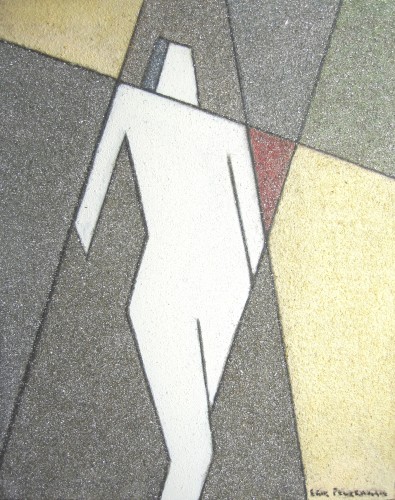
Are you the inventive type? Innovative? Entrepreneurial? Creative?
If you don’t know the answer to the question, the answer is probably no.
But you can take some tests that try to tell you what kind of person you are, what your intelligence level might be, and even (perhaps) how creative you are.
For example, you can take a personality test to see where you stand in the ‘big five’: extraversion, agreeableness, conscientiousness, emotional stability and how open you are to experience. You can take a long, tedious test (“instrument”), or a short quick one. To quote Gosling et al. (2003): “The widely accepted answer is that, all things being equal, long instruments tend to have better psychometric properties than short instruments.” But if you’re pressed for time (many creative people are) here is a quick one (the ten point TIPI):
I see myself as: 1. _____ Extraverted, enthusiastic. 2. _____ Critical, quarrelsome. 3. _____ Dependable, self-disciplined. 4. _____ Anxious, easily upset. 5. _____ Open to new experiences, complex. 6. _____ Reserved, quiet. 7. _____ Sympathetic, warm. 8. _____ Disorganized, careless. 9. _____ Calm, emotionally stable. 10. _____ Conventional, uncreative. You just rate yourself on the extent to which you agree or disagree, and we all know a lot about you and your potential. Or not. (Gosling et al., 2003)
You could take an IQ test. There are several kinds and they have cultural bias (Most current IQ tests use the Cattell-Horn-Carroll (CHC) model). They test your ability to answer questions, their questions. But if you get a high mark, well it’s good for the ego. Again you’ll have to admit that only a weirdo would put his/her IQ score on a cv or work application.
According to Gardner (Gardner, H. Multiple Intelligences: New Horizons; Perseus: New York, NY, USA, 2006) people are complicated and have different kinds of intelligences. (encompassing interpersonal, intrapersonal, spatial, naturalistic, language, logical-mathematical, bodily-kinesthetic, and musical).
There is now a journal dedicated to intelligence (who would have believed?) named, oddly enough, The Journal of Intelligence. James Kaufman has written an illuminating article which I am referring to, so it’s only proper I thank him (for putting things into perspective) and cite him: Why Creativity Isn’t in IQ Tests, Why it Matters, and Why it Won’t Change Anytime Soon Probably.
http://J. Intell. 2015, 3, 59-72; doi:10.3390/jintelligence3030059
One of the common tests for creativity, according to the James version, is Torrance: Torrance, E.P. The Torrance Tests of Creative Thinking Norms-Technical Manual Figural (Streamlined) Forms A & B; Scholastic Testing Service: Bensenville, IL, USA, 2008. It is an official and un-creative sounding name for a test. If you do take this test, please let me know. There are of course critiques on what kind of creativity it measures and does not measure.
It does measure your ability to be creative when confronted with two dimensional objects.
For example. You get a circle or bunch of circles, and you are asked to draw something creative. You drew a face? Not very creative. You drew the cross section of a nuclear reactor or thread or half-eaten worm? Might be moreso (or not). And, as you might assume, as with every other kind of testing mechanims there are courses that can help you ‘improve’ your (or you child’s) TTCT scores. By being more creative, or more adept at practicing originality of the practicable kind?
According to James, in the future, computers can be harnessed to measure human creativity through their assessment of creating writing, chess playing ability, interaction with video games, etc. This I find quite amusing. Having computers assess my creativity. Hmmm…
It reminds me of a great definition for creativity that I once heard from Talma Vardi, “Creativity is what humans can think up that computers can’t. Yet.”
Behaviour: We could of course take a behavioral approach. Let’s start with one of my heroes, Johann Heinrich Pestalozzi who taught that learning should come from the “head, the heart and the hand”. Thinking, feeling and acting. Modern day psychologists sometimes call it the ABC of Psychology: affect (feeling); behavior (doing) and cognition (thinking). So just being smart isn’t enough to be an innovator. You have to feel the passion, the need. And you have to take actions (sometimes many, over many years) to put your ideas into practice.
And should we ignore Maslow’s Hierarchy of Needs? Of course not. Although it’s not well-supported scientifically, and has been challenged on various grounds, it is well known and used in many fields. Including creativity.

Finally, we should pay homage to Mihaly Csikszentmihalyi
and his FLOW theory. Here is the TED video.
Published: Aug 17, 2016
Latest Revision: Apr 16, 2017
Ourboox Unique Identifier: OB-182884
Copyright © 2016








